Filter by
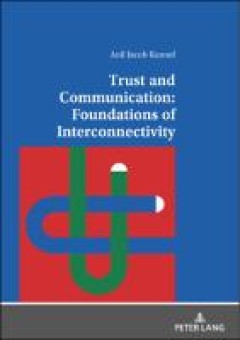
Trust and communication : foundations of interconnectivity
In today’s global and digitalized world, the investigation of relational trust as part of social connections has remained a popular and interdisciplinary academic topic. This book explores the idea of trust as a basic type of information processing that might be as old as human existence but has gained new attention with the emergence of online communication channels. The result is a strategi…
- Edition
- -
- ISBN/ISSN
- 9783631842683
- Collation
- 213 p.
- Series Title
- -
- Call Number
- 302.2 KUN t
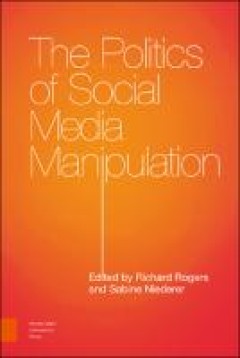
The politics of social media manipulation
Disinformation and so-called fake news are contemporary phenomena with rich histories. Disinformation, or the willful introduction of false information for the purposes of causing harm, recalls infamous foreign interference operations in national media systems. Outcries over fake news, or dubious stories with the trappings of news, have coincided with the introduction of new media technologies …
- Edition
- -
- ISBN/ISSN
- 978 90 4855 167 5 (
- Collation
- 292 p.
- Series Title
- -
- Call Number
- 320 POL p
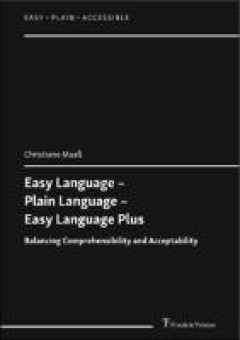
Easy Language – plain language – easy language plus : balancing comprehen…
This book shows how accessible communication, and especially easy-to-understand languages, should be designed in order to become instruments of inclusion. It examines two well-established easy-to-understand varieties: Easy Language and Plain Language, and shows that they have complementary profiles with respect to four central qualities: comprehensibility, perceptibility, acceptability and stig…
- Edition
- Vol. 3
- ISBN/ISSN
- 9783732992997
- Collation
- 301 p.
- Series Title
- Easy – Plain – Accessible, 3
- Call Number
- 428.2 MAA e
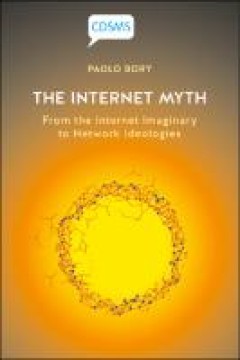
The internet myth: from the internet imaginary to network ideologies
‘The Internet is broken and Paolo Bory knows how we got here. In a powerful book based on original research, Bory carefully documents the myths, imaginaries, and ideologies that shaped the material and cultural history of the Internet. As important as this book is to understand our shattered digital world, it is essential for those who would fix it.’ — Vincent Mosco, author of The Smart C…
- Edition
- -
- ISBN/ISSN
- 9781912656752
- Collation
- xiii, 169p.: ill
- Series Title
- -
- Call Number
- 004.678 BOR i
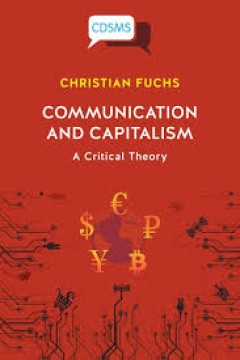
Communication and capitalism: a critical theory
‘An authoritative analysis of the role of communication in contemporary capitalism and an important contribution to debates about the forms of domination and potentials for liberation in today’s capitalist society.’ — Professor Michael Hardt, Duke University, co-author of the tetralogy Empire, Commonwealth, Multitude, and Assembly ‘A comprehensive approach to understanding and transce…
- Edition
- -
- ISBN/ISSN
- 9781912656714
- Collation
- -
- Series Title
- -
- Call Number
- 302.2 FUC c
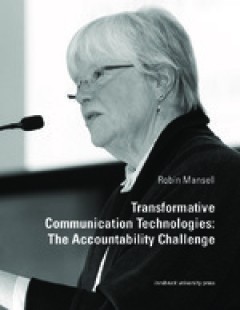
Transformative Communication Technologies: the accountability challenge (36th…
"This booklet documents the 36th Boehm-Bawerk Lecture, presented by Prof. Robin Mansell on October 31, 2017 as a ceremonial opening ceremony for the Institute of Media, Society and Communication at the Faculty of Social and Political Sciences. "
- Edition
- -
- ISBN/ISSN
- 9783903187146
- Collation
- 96p.: ill.
- Series Title
- -
- Call Number
- 070.4 MAN t
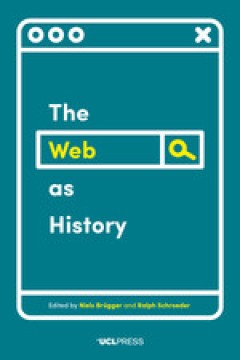
The Web as history: using web archives to understand the past and the present
This article puts on the agenda one of the fundamental theoretical questions within the emerging field of website history: how can the object of historical study — the website — be delimited? Its focus is on the 'website' artefact as a medium and a text. After elaborating a definition of the website, as well as discussing how the website is distinct from other possible analytical web object…
- Edition
- -
- ISBN/ISSN
- 9781911307563
- Collation
- 296 p.; 22 cm.
- Series Title
- -
- Call Number
- 310 BRU w
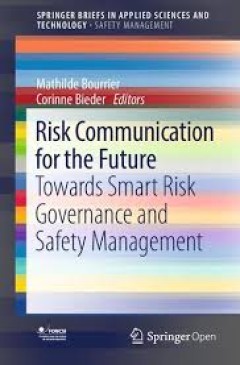
Risk Communication for the Future : Towards Smart Risk Governance and Safety …
The conventional approach to risk communication, based on a centralized and controlled model, has led to blatant failures in the management of recent safety related events. In parallel, several cases have proved that actors not thought of as risk governance or safety management contributors may play a positive role regarding safety. Building on these two observations and bridging the gap betwee…
- Edition
- -
- ISBN/ISSN
- 9783319740980
- Collation
- -
- Series Title
- -
- Call Number
- 363.1 BOU t
 Computer Science, Information & General Works
Computer Science, Information & General Works  Philosophy & Psychology
Philosophy & Psychology  Religion
Religion  Social Sciences
Social Sciences  Language
Language  Pure Science
Pure Science  Applied Sciences
Applied Sciences  Art & Recreation
Art & Recreation  Literature
Literature  History & Geography
History & Geography